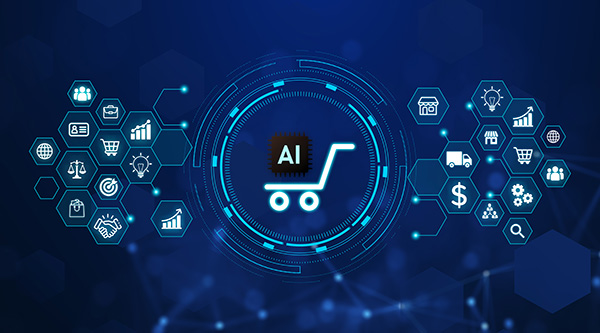For many companies, domain-specific AI offers faster deployment, built-in compliance, and smarter ROI.
By Oded Sagie, VP of Product and R&D, Aquant
Open-source models like DeepSeek-R1 provide companies with a powerful foundation to build customized AI solutions without the cost and complexity of starting from scratch. Yet even with this new flexibility, for many companies, especially those in industries with established best practices, regulations, and specialized processes, buying domain-specific platforms or outsourcing AI capabilities remains the fastest, safest, and often most cost-effective route to realizing value. With expert-built platforms already tailored to their unique challenges, companies can deploy faster, ensure regulatory compliance, and benefit from years of pre-built intelligence, advantages that even the best internal teams may struggle to replicate.
DeepSeek’s approach diverges from the conventional trend of expanding AI models through sheer scale. Instead, it focuses on reinforcement learning, fine-tuning, and data distillation to optimize reasoning and efficiency. More importantly, its open model allows companies to build upon it, much like how AI platform companies use open-source models like LLaMA 2, GPT-NeoX, or Bloom to develop customized solutions. (While OpenAI pioneered some early open models like GPT-2, its most recent flagship models, including GPT-3.5 and GPT-4, are not open source.)
This shift offers key lessons for enterprises evaluating their AI strategy:
However, it’s important to note that DeepSeek has not yet surpassed the most cutting-edge AI models. Industry experts suggest its capabilities align with models released months prior, reinforcing the reality that staying at the forefront of AI requires ongoing investment and adaptation.

DeepSeek’s emergence reinforces that AI adoption is no longer a choice between fully building from scratch or buying off-the-shelf solutions. Instead, businesses now have the flexibility to customize and refine AI models based on existing open-source frameworks, or to outsource AI entirely. In many cases, particularly in industries like manufacturing, healthcare, or field service, pre-built domain-specific platforms already offer the right combination of proven technology and tailored functionality, making them the smarter investment.
The key considerations include:
Open-source models like DeepSeek reduce initial development costs and offer flexibility for highly unique business needs. However, domain-specific platforms may prove more cost-effective over time, especially for companies without large AI engineering teams, because they include maintenance, updates, and compliance as part of the service.
The right choice depends on your internal expertise: building makes sense if you have strong AI talent and specialized requirements, while buying is often smarter for organizations that want faster time to value with lower ongoing complexity.
AI solutions perform best when they are trained with industry-specific data. Whether built internally, adapted from existing models, or fully outsourced, AI must be tailored to real-world use cases to be truly effective. Many vendors offering domain-specific platforms have spent years curating high-quality, industry-relevant data, something that’s difficult for companies building in-house solutions to replicate.
The build-vs-buy decision often comes down to how unique your needs really are. If you’re working with one-of-a-kind data or niche workflows (like a custom biotech pipeline or rare industrial configuration), building on open-source foundations may be ideal. But if you operate in a regulated, well-covered space, like healthcare, industrial equipment, or financial services, domain-specific platforms already embed years of industry knowledge, making them the smarter option.
AI development is not a one-time project; it requires continuous investment in data updates, monitoring, and refinement. Companies that choose to build on open-source models must still invest in engineering resources to maintain and enhance performance over time, while outsourced solutions, especially domain-specific platforms, often include built-in updates, regulatory compliance, and enhancements as part of the service.
DeepSeek’s emergence reinforces that AI success isn’t solely about who builds the biggest model, it’s about who strategically applies AI to drive the most value.
For companies with strong AI capabilities and highly specialized requirements, leveraging open-source models like DeepSeek can provide the customization and control needed to build a competitive advantage. However, for the vast majority of companies, especially those in industries with complex processes, regulatory requirements, or specialized data needs, purchasing a domain-specific AI platform remains the faster, more reliable, and cost-effective choice.
Domain-specific platforms deliver fast time-to-value by addressing common pain points out of the box. However, companies with rapidly evolving needs or highly differentiated workflows should ensure their chosen platform allows for extensibility, otherwise, they may eventually hit a ceiling on customization or innovation.
Whether building your own model or purchasing fully managed solutions, the key to AI success lies in thoughtful implementation, continuous optimization, and a clear focus on solving your business problems.

About the Author:
Oded Sagie is the VP of Product and R&D at Aquant, where his passion for user experience, technology, and engineering guides his leadership of R&D teams and product design. With a clear vision for future products and cutting-edge technologies, Oded is dedicated to delivering compelling experiences that align with Aquant’s mission.
In this episode, I sat down with Beejan Giga, Director | Partner and Caleb Emerson, Senior Results Manager at Carpedia International. We discussed the insights behind their recent Industry Today article, “Thinking Three Moves Ahead” and together we explored how manufacturers can plan more strategically, align with their suppliers, and build the operational discipline needed to support intentional, sustainable growth. It was a conversation packed with practical perspectives on navigating a fast-changing industry landscape.